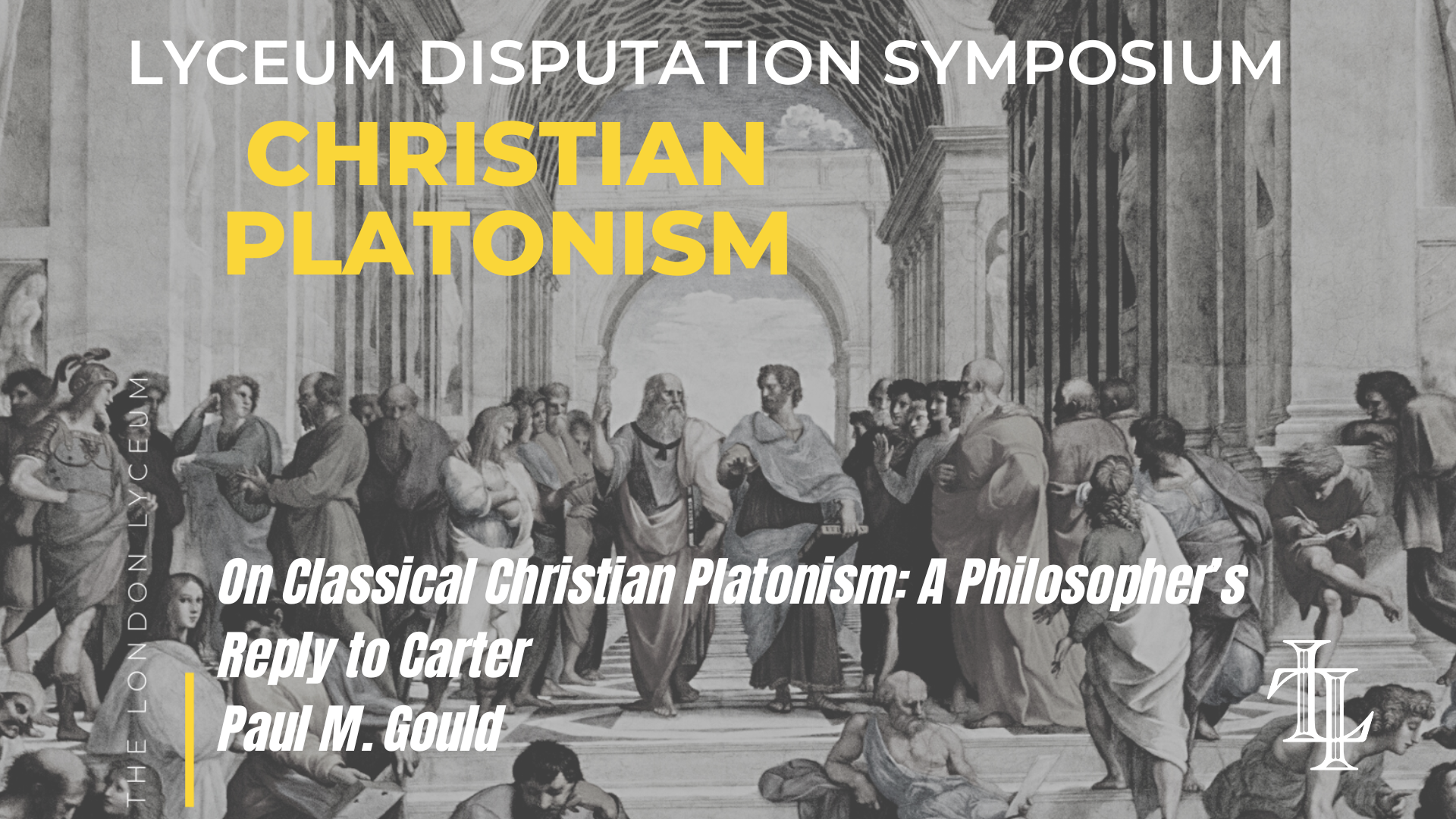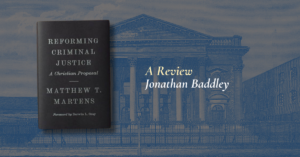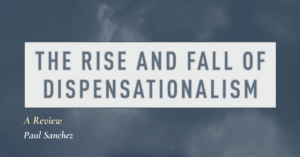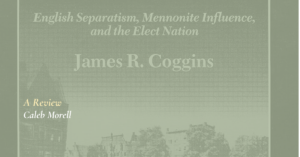Editor’s Note: This is part 1 in our Lyceum Disputation series considering the nature and potential necessity of contemporary “Christian Platonism” as exemplified here and here. Stay tuned for further installments. As with all our work, the London Lyceum publishes a range of viewpoints to encourage thinking.
As a Christian philosopher, I’m happy to count myself as a Platonist. Over the years, I’ve defended a version of Christian Platonism in the philosophical literature and I’ve tried to encourage an enchanted view of the world in more popular work as well, including my book Cultural Apologetics.[1] For that reason, I’ve been watching with great interest the renewal project afoot in theology. According to those involved in the renewal project, ever since the Enlightenment, Hume’s fork and Kant’s shadow have loomed large in theology. As a result, it is now widely thought that if one is to be respectable in the academy (in contrast to the church, although the church often follows in her wake), one must adopt methodological naturalism, effectively severing, at least epistemologically if not ontologically, the connection between the sacred order and the natural order. But this methodological severing of the sacred and natural order, according to the theologians involved in the renewal project, has led to a radical distortion, if not emasculation, of Christian doctrine. Modern theology is in crisis. The way out of the crisis is by way of retrieval. Those theologians involved in the renewal project seek to “reconnect the broken cord” or reweave the “sacred tapestry” or “reenchant the world” by recapturing the sacramental ontology of the Great Tradition.[2]
To all of this I say a hearty “amen.” But there are problems lurking within the renewal movement in theology. At the risk of sounding overly harsh, I have at least three worries. First, there is a lack of precision within much of the theological literature when it comes to defining or using key terms such as “Christian Platonism,” “teleology,” “participation,” “sacramental,” “law,” “being,” and “nominalism,” among others. Second, there can be a penchant for assertion without argument. The problem with prioritizing bold assertions where carefully crafted arguments are needed leads to my third worry: the temptation to become rigidly dogmatic, resulting in a lack of charity toward others or the views of others that are deemed outside the fold of a narrowly defined kind of orthodoxy. The better way to put this last point is that I find in some—by no means all—of this literature a lack of theological modesty and epistemic humility. It is with these worries in mind that I now turn to Craig Carter’s two-part series in credomag.com on Christian Platonism.[3] Carter seeks to answer two questions: (1) What is Christian Platonism? (2) Why should we affirm Christian Platonism? Let’s consider Carter’s answer to each question.
Defining Christian Platonism
What is Christian Platonism? I’m not exactly sure after reading Carter’s essay. I think Carter’s essay is best understood as offering two—a wide and narrow—definitions of Christian Platonism. On the wide reading, virtually the entire theological tradition prior to Kant can be labeled “Christian Platonism.” On the narrow reading, Christian Platonism is “a description of Augustinianism.” This Augustinianism, as is well known, is deeply Platonic, incorporating the idea that the visible world depends for its existence and nature on the intelligible world and the idea that “a simple, immutable, eternal, self-existent First Cause” brought the universe into being out of nothing. At times, such as his discussion of the metaphysical system presupposed at the councils of Nicaea and Chalcedon, Carter has the narrow understanding of Christian Platonism in view. At other times, such as his discussion of laws of nature, natural (moral) laws, and scholastic realism, Carter has the wider definition of Christian Platonism in view. Since Aristotle (following Lloyd Gerson) was a Platonist, all the Thomists (and, perhaps, but it is unclear from his essay, even those in the sixteenth and seventeenth century who rejected substantial forms and teleology and the like yet still held to the idea of a rational, mathematically ordered universe governed by laws decreed by God) were Christian Platonists. While I’ve benefitted from Gerson’s work and agree at one level that Aristotle is, or can be labeled as a kind of Platonist, the contemporary Thomists and/or neo-Aristotelians doing serious work in contemporary analytic philosophy and theology would beg to differ.[4] Part of the reason why they’d beg to differ is that the term “Platonism” has undergone a conceptual shift in meaning over the past couple of centuries. I’ll first explain this conceptual shift and then I’ll offer a taxonomy of Christian Platonisms with the hope of bringing (some) conceptual clarity to the discussion.
The medieval debate between the realists, or Platonists, and the nominalists was over the problem of universals. The realist/Platonist thought universals exist. The nominalist didn’t. However, the debate over Platonism shifted in the 19th and 20th centuries away from a debate regarding universals to a debate about abstract objects. Today, in contemporary analytic philosophy it is widely understood that the Platonist affirms the existence of abstract objects whereas the nominalist denies their reality.[5] While it is notoriously difficult to give a precise definition of “abstract object,” it is generally agreed that abstract objects are immaterial, nonspatial, necessary (setting aside sets with contingent members), and eternal (again, setting aside sets and perhaps fictional objects) acausal non-agents. This conceptual shift with respect to “Platonism” is often entirely overlooked by the theologians within the retrieval movement. There is rarely any mention of the debate over abstract objects, yet contemporary Platonism is alive and well in philosophy departments and seriously entertained by Christian philosophers today.[6]
Let’s see if we can begin working toward a definition of “Christian Platonism” by first defining Classical Theism and Contemporary Platonism.
Classical (Christian) Theism (CT): The omni-God exists as a simple, immutable, timeless, impassible Triune being.
Contemporary Platonism (CP): Abstract objects exist.
Next question: is there a “Platonic core” that all Christian Platonisms share? I’m not sure. There could be a kind of family resemblance amongst Christian Platonisms. Still, I think it is helpful to try and specify without being rigid a set of features distinctive of Christian Platonism. I propose that something like the following mood, method, and doctrines will be part of any thick version (to be defined shortly) of Christian Platonism, and thus I’ll dub it the “Platonic Core.” The Platonic Core is as follows.
First, Christian Platonism marks out a particular kind of mood when it comes to intellectual inquiry. This mood can be expressed in terms of a preference for rainforests over desert landscapes. The idea is that reality is rich, abundant, complex, magical, and full of wonders and delights. Contrast this mindset with the modern preference for reductionism, simplicity, materialism, atomism, and what is sometimes described in philosophy as “desert landscapes.” The idea, on this more modern preference, is that the world is simple: reducible to fundamental particles (Humean corpuscles or whatever turns out to be the fundamental particles according to physics) and the rest of reality is “nothing but” organized clumps of these fundamental bits of reality.
Second, Christian Platonism marks out a particular method for intellectual inquiry. In particular, Platonism, and Christian Platonism, are versions of what Llyod Gerson calls “Top-downism.” The idea, according to Gerson, is that Platonism answers questions about the phenomena within the universe (i.e., the “sensible realm”) by “appeals to first or higher or irreducible principles” and not primarily “in terms of elementary physical particles from which things ‘evolve’ or upon which the phenomena ‘supervene.’”[7] And of course, the same can be said for Christian Platonism: God is the ultimate fundamental uncaused cause and ungrounded ground of all the phenomena of the physical universe; without reference to God there cannot be a satisfactory account of the origin, identity, persistence, or destiny of the universe.
Finally, Christian Platonism endorses a sacramental ontology. The idea is that the universe is a sacramental universe that functions in at least two ways. First, it functions semiotically, as a sign pointing beyond itself to (what I’ll call) the sacred order. Second, the universe is sacramental because God’s grace and presence are mediated to creatures through the universe (that is, the universe participates in God). This sacramental vision of reality is usually spelled out in terms of a commitment to four doctrines:
- First, a participatory ontology. The idea is that things in this world “participate” in God in some way. Good things participate in goodness itself; beautiful things participate in Beauty itself; individual trees participate in Tree-hood itself.
- Second, a commitment to divine exemplarism. Divine exemplarism relates to the doctrine of creation and provides a partial account of how God creates. The basic idea is that God creates according to divine ideas. So, prior to creating trees, God had in mind an idea or concept of a tree and created it according to that idea or concept. Prior to creating C. S. Lewis, God had an idea of C. S. Lewis in his mind. On this view, all creaturely reality resembles a divine idea.
- Third, a commitment to the hierarchy of beings. The idea here is that reality is structured along a rationally ordered hierarchy of being (organized according to an ascending or descending hierarchy of powers or perfections). This is the ancient idea of a Great Chain of Being, with God at the top, followed by Angels, Humans, Animals, Plants, inanimate things, and finally non-being.
- Finally, a commitment to the principle of plenitude. A strong version of the principle of plenitude states that “every possible thing is actual.” Christian Platonism need not (and usually does not) commit to such a strong version of plenitude, but the idea that God creates a universe full of good things is a powerful and pervasive aspect of Christian Platonic thought.
With the distinction between Classical Theism, Contemporary Platonism, and the Platonic Core in place, we can now locate Carter’s Christian Platonism within what I hope to be a more helpful taxonomy. As Figure 1 shows, we can first distinguish between Classical Christian Platonism, the version of Christian Platonism that endorses Classical Theism plus the Platonic Core, from Contemporary Christian Platonism. Further, there are at least two versions of Contemporary Christian Platonism, a thin and thick version. The thin version of Contemporary Christian Platonism endorses the claims that the Triune God and abstract objects exist. The thick version of Contemporary Christian Platonism adds the Platonic Core but not necessarily Classical Theism to the package.[8] Speaking now of my own version of (thick) Contemporary Christian Platonism, I reject the Classical Theistic package (simplicity, strong immutability, timelessness, and impassibility) on biblical and philosophical grounds but not the theological motivation that led the Church Father to adopt those views.[9] Those theological motives include safeguarding divine aseity, divine sovereignty, and the doctrine of creation out of nothing.

Defending Christian Platonism
While I can’t be sure that Carter accepts every part of the Platonic Core, I think it is safe to label his view “Classical Christian Platonism,” as noted in Figure 1. Given my proposed taxonomy, I hope it is obvious that Carter’s defense of Christian Platonism is better understood as a defense of one version of Christian Platonism. Unfortunately, I’m not even sure it is much of a defense of Classical Christian Platonism. Rather, Carter seems most interested in retrieving Classical Theism; Christian Platonism is just the historical setting from which the Classical Theist flower bloomed. In other words, it seems to me that what Carter is most interested in preserving is not Christian Platonism per se, but Classical Theism, and he views the two as inseparable (and inescapable). But, as I’ve suggested, Classical Theism is not essential to Christian Platonism. But then his apology for Christian Platonism is more of a sideshow to the main target: affirming Classical Theism. That is all well and good, I think, but it would help the reader—and the dialogue—move along in more fruitful directions if our commitments were made more explicit.
When it comes to Carter’s actual defense of Christian Platonism, we find a series of assertions, false dichotomies, and rhetorical flourishes without much by way of actual argumentation. I’ll briefly cite two examples (corresponding to the first two points in the first essay) to demonstrate Carter’s general approach. I’ll leave it to the reader to spot this general approach in the rest of this two-part series. First, after identifying Platonism with Augustinianism, we are told by Carter, “if Augustine is a heretic, we are pretty much all heretics and we had better convert to Russian Orthodoxy en masse.” This sentence seems over the top: are the only Biblically faithful choices full acceptance of Augustinianism or heresy? Is there no middle ground? Are we not free to reject what is Biblically questionable and what is philosophically suspect without being labeled heretical (or Russian Orthodox)? Carter seems to really think these are the only options, as he states in the next sentence, “My point is that we need to understand that rejecting Christian Platonism means rejecting Augustine on a fundamental level and that is hardly feasible, since he is such a biblical theologian.” It is true that Augustine is a wonderful biblical theologian. But so are so many others from the last two-thousand years, many who disagree with Augustine (or Classical Theism as defined above more generally) on things. I have no idea how it is “hardly feasible” to reject Augustinianism/Classical Christian Platonism/Classical Theism. Many do (and many don’t, of course).
The second example is worse. Carter claims that one must adopt Christian Platonism—recall that what he really means here is Classical Theism—in order to maintain Nicene Orthodoxy. Carter writes, “creedal orthodoxy is bound up with Christian Platonist metaphysics in ways that make disentangling them nearly impossible.” At least, at this point, the non-Classical Theist is offered a sliver of hope: while it is nearly impossible to maintain Nicene orthodoxy, it is not actually impossible. Unfortunately, Carter tightens things up and rules out any real possibility for orthodoxy for any who reject [Classical] Christian Platonism when offering “two quick examples” to support the claim that Nicene orthodoxy requires [Classical] Christian Platonism. First, Carter asserts that since the Doctrine of Divine Simplicity played a crucial role in securing the full deity of the Son (and Father) at Nicea, we then have a good reason to think it is the only way to secure the full deity of the Son (and the Father). Second, Carter asserts that only Classical Christian Platonism can secure the doctrine of creation out of nothing, and for that reason, orthodoxy demands subscription to Classical Christian Platonism. Neither of these “reasons” is well-argued. In fact, I can’t discern any argument for these crucial (and rhetorically loaded) claims. Since Andrew Hollingsworth and Jordan Steffaniak have recently shown how Craig’s second claim is false, I’ll confine my comments to the first claim about the Doctrine of Divine Simplicity.[10]
Carter claims that those who reject Divine Simplicity “think that they can deny simplicity while remaining within Nicene orthodoxy, but they are unaware of the fact that this is not actually possible.” I’m not exactly sure what to say regarding this claim. Except that it is false. It is demonstrably possible to maintain Nicene orthodoxy without adopting [Classical] Christian Platonism. As any contemporary metaphysician will know, it is possible to hold these two claims together without any appeal to divine simplicity:
- The Father is divine.
- The Son is divine.
The trick is to notice that the “is” here is the “is” of essential predication. Thus, claim (1) tells us that the Father is essentially divine, and claim (2) tells us that the Son is essentially divine. The Father has divinity and the Son has divinity. All is well and good: the Son is of the same essence as the Father! Nicene orthodoxy without any appeal to the Doctrine of Divine Simplicity. Of course, there is more work to be done to provide a mature metaphysical theory that grounds the truth of (1) and (2), and those choices will involve whether to adopt modal essentialism or real essentialism, Platonic or Aristotelian universals or some version of trope theory, constituent or relational ontological frameworks, and questions related to mereology and metaphysical priority, and more. The point is that there are plenty of resources available to the Christian metaphysician to maintain Nicene orthodoxy even if simplicity or the philosophical presuppositions that support it are rejected.
Part of the problem is that Carter seems to think that you must either adopt [Classical] Christian Platonism or modern naturalism. He claims, “My point is that the doctrine of the Trinity does not work in just any metaphysical system whatsoever. Modern naturalism imposes metaphysical constraints on the Christian doctrine of God that make Nicene Trinitarianism impossible to maintain.” This, of course, is another false dichotomy. Who said anything about naturalism? Are we not talking about Christian philosophers and theologians? There are more than two games in town, Platonism and Naturalism, contrary to Gerson’s claim, a claim that Carter endorses without much awareness of the actual state of the dialectic in contemporary philosophy (and contemporary Christian philosophy).
In an excellent essay on theory construction in theology, the Christian philosopher Scott Shalkowski notes that theory construction in theology, like theory construction in general, is a “context-relative matter.”[11] This suggests, according to Shalkowski, that we “should, therefore, at least be willing to consider the possibility that the old frameworks, as reasonable as they were for their advocates and as instructive as they may be for us now, are hindrances to progress in understanding the nature, ways, and intentions of God.”[12] I worry that Carter’s lack of nuance and bold yet unfounded claims in support of philosophically suspect parts of the [Classical] Christian Platonic heritage might, in the end, serve to undermine the very faith he so admirably seeks to retrieve and deliver afresh to a church in need of renewal.
[1] For a survey of some of the contemporary debate by philosophers over Platonism and God see Paul M. Gould, ed., Beyond the Control of God? Six Views on the Problem of God and Abstract Objects (New York: Bloomsbury, 2014). For my most recent defense of Christian Platonism, see Timothy Mosteller, ed., Four Views on Christian Metaphysics (Eugene, OR: Cascade, 2022). See also my Cultural Apologetics: Renewing the Christian Voice, Conscience, and Imagination in a Disenchanted World (Grand Rapids, MI: Zondervan, 2019).
[2] Representative works by theologians involved in the renewal project, in addition to Craig Carter, include Hans Boersma, Nouvelle Théologie and Sacramental Theology: A Return to Mystery (Oxford: Oxford University Press, 2009), and Heavenly Participation: The Weaving of the Sacramental Tapestry (Grand Rapids, MI: Eerdmans, 2011); John Milbank, Theology and Social Theory: Beyond Secular Reason, 2nd ed. (Oxford: Blackwell, 2006); Catherine Pickstock, After Writing: On the Liturgical Consummation of Philosophy (Oxford: Blackwell, 1998); Graham Ward, Cities of God (London: Routledge, 2000); Gerald R. McDermott, Everyday Glory: The Revelation of God in all of Reality (Grand Rapids, MI: Baker, 2018); Paul Tyson, De-fragmenting Modernity (Eugene, OR: Cascade, 2017); and the collection of essays in Radical Orthodoxy: A New Theology, eds. John Milbank, Catherine Pickstock, and Graham Ward (London: Routledge, 1999) and Radical Orthodoxy and the Reformed Tradition: Creation, Covenant, and Participation, eds. James K. A. Smith and James Olthuis (Grand Rapids, MI: Baker, 2005).
[3] https://credomag.com/2021/03/why-should-we-affirm-christian-platonism/ and https://credomag.com/2021/03/why-should-we-affirm-christian-platonism-part-ii-systematic-reasons/.
[4] See, e.g., the introduction to a recent work on neo-Aristotelian metaphysics, where the editors explicitly define neo-Aristotelianism as (in part) a rejection of extreme Platonism with respect to properties (and abstract objects, in general). See Robert C. Koons, William M. R. Simpson, and Nicholas J. Teh, (eds.), Neo-Aristotelian Perspectives on Contemporary Science (New York: Routledge, 2018).
[5] For a helpful summary of the two debates over Platonism, see Gonzalo Rodriquez-Pereyra, “Nominalism in Metaphysics,” Stanford Encyclopedia of Philosophy, ed. Edward N. Zalta (2015). https://plato.stanford.edu/entries/nominalism-metaphysics/.
[6] This lack of awareness regarding the contemporary debate over Platonism in analytic philosophy is not confined to Carter, however. There is no mention of the debate over God and abstract objects in the monumental—and otherwise excellent—volume, Christian Platonism: A History, Alexander J. B. Hampton and John Peter Kenney, eds. (Cambridge: Cambridge University Press, 2021).
[7] Lloyd P. Gerson, Aristotle and Other Platonists (Ithaca: Cornell University Press, 2005), 32.
[8] Could there be a thick version of Contemporary Christian Platonism that includes Classical Theism? Yes. For example, if one adopts truthmaker theory in order to make sense of divine and human predication, it seems one could hold to Classical Theism and a Platonic assay of creaturely charactered objects. See for example, the second part of Michael Bergmann and Jeffrey Brower, “A Theistic Argument against Platonism (and in Support of Truthmakers and Divine Simplicity),” Oxford Studies in Metaphysics, Vol. 2, ed. Dean Zimmerman (Oxford: Oxford University Press, 2006), 357–386.
[9] For more on some of those biblical and philosophical grounds for my rejection of Classical Theism, see my contribution to Timothy M. Mosteller, ed., Four Views on Christian Metaphysics.
[10] Andrew Hollingsworth and Jordan Steffaniak, “Craig Carter on Creatio Ex Nihilo and Classical Theism,” Philosophia Christi 23.2 (2022): 249–269.
[11] Scott A. Shalkowski, “Theoretical Virtues and Theological Construction,” International Journal for Philosophy of Religion 41 (1997): 78.
[12] Ibid., 79.
Author
-
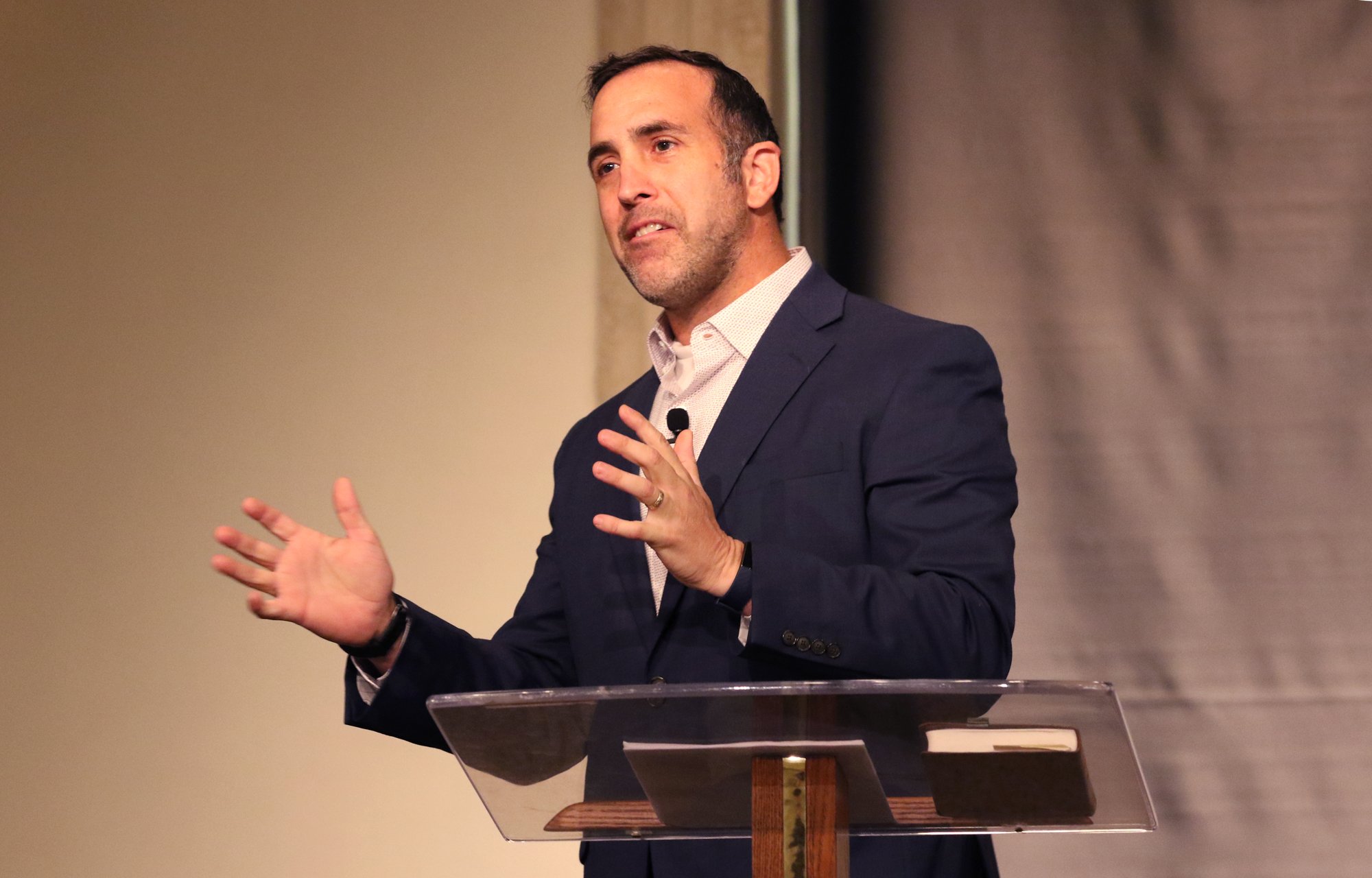
Paul M. Gould (PhD, Purdue University) is an associate professor of philosophy of religion and director of the M.A. Philosophy of Religion program at Palm Beach Atlantic University. He is the author or editor of ten scholarly and popular-level books including Cultural Apologetics, Philosophy: A Christian Introduction, and The Story of the Cosmos. He has been a visiting scholar at Trinity Evangelical Divinity School’s Henry Center, working on the intersection of science and faith, and is the founder and president of the Two Tasks Institute. He speaks regularly at universities, churches and ministries around the country, including Summit Ministries, the C.S. Lewis Institute, and the EPS's annual apologetics conference. He is married to Ethel and has four children.
